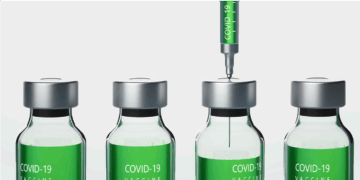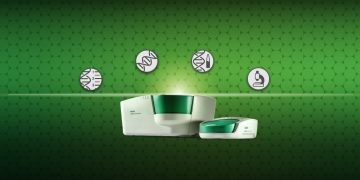
CDMOs Drive Cell and Gene Therapy from Behind the Scenes
As more of the cell and gene therapies revolutionizing healthcare are approved for use, innovator companies usually get the credit. But many therapies would never make it to market without the expertise and capabilities of contract development and manufacturing organizations (CDMOs) operating behind the scenes. Learn more about how CDMOs enable new cell and gene therapies to come to market, and how Droplet Digital PCR can help.

Advanced Cancer Therapeutics: Increasing Efficacy and Specificity and Reducing Toxicity
Research into human diseases has led to the development of novel monoclonal antibody drugs. These monoclonal antibody therapies have been successful because of their specificity and selectivity. However, ongoing development and successfully launching a new mAb drug require robust and reliable methods to screen for drug targets, demonstrate drug safety and efficacy, and scale up manufacturing to meet the stringent regulatory guidelines required for approval.

With Cell and Gene Therapies, Success and Quality Control Go Hand-in-Hand
While the FDA has approved Abecma, the first CAR-T cell therapy in its class, regulatory approval is just the beginning for cell and gene therapies. Such therapies’ safety and financial viability rest on a robust manufacturing and quality control program with the flexibility to scale up and out. Droplet Digital PCR is a sensitive biopharmaceutical quality control tool, offering absolute quantification of nucleic acids and other molecules in a sample.

Immune Surveillance in SARS-CoV-2 Vaccine Development
The ability to characterize the target of cell-mediated immune response is crucial during vaccine development. In studying the characterization of SARS-CoV-2 infection pathogenesis in humans, a research team identified neutralizing antibodies that provided context for vaccine antigen design. Discover how the ZE5 Cell Analyzer was used to detect activation-induced markers, measure intracellular cytokines, and identify spike protein–specific antibodies in a rapid, high-throughput manner.

The Role of ddPCR in Developing Safe and Effective AAV-Based Gene Therapies
Developing adeno-associated virus (AAV)-mediated gene therapies requires accurate and precise quality control. Read how Droplet Digital PCR technology provides the sensitivity needed to assess the potential safety and effectiveness of these treatments.

Multiplex Immunoassays in the Race for a COVID-19 Vaccine
In vaccine development, safety and efficacy are critical. Recent studies have shown that multiplex immunoassays offer a flexible way to monitor immune responses. With the ever-increasing pressure on scientists to develop a practical COVID-19 vaccine, multiplex immunoassays stand out as a proven tool.

Serving your Downstream Purification Needs
The Process Chromatography Team at Bio-Rad offers a variety of resources to address scientists’ needs during the downstream purification process. Visit our robust online library, which contains application notes, tutorials, webinars, and more, or contact us to speak with a specialist or request a customized seminar.

Top 5 Challenges Faced by AAV Developers Today
Adeno-associated viruses (AAVs) are some of the most commonly used viral vectors for gene therapy, supporting approximately 250 clinical trials to date. However, the manufacturing processes are challenging to scale. Read about five key issues that gene therapy manufacturers who use AAVs need to look out for.

A New International Standard to Measure DNA?
From quantifying a patient’s tumor DNA to counting the viral load of an individual infected with COVID-19, the breadth of digital PCR (dPCR) applications continues to grow and fulfill critical scientific needs. dPCR offers the ability to count nucleic acid molecules directly, rather than extrapolating the quantity from standard curves as with many other methods. By harmonizing diagnostic procedures on dPCR platforms, the scientific and medical communities can become more coordinated and efficient.

Data Standardization
Increasingly, biopharma research & development experimental data are siloed and stored in varying formats. This makes it difficult to search, retrieve and share data. Furthermore, these data are often not interoperable, making it impossible to compare. Data needs to be better managed to be more collaborative, shareable, and interoperable, in order to accelerate research and continue making breakthroughs. Data standardization aims to forge a path toward machine-readable and actionable data that can be found, accessed, and reused with minimal human intervention.
